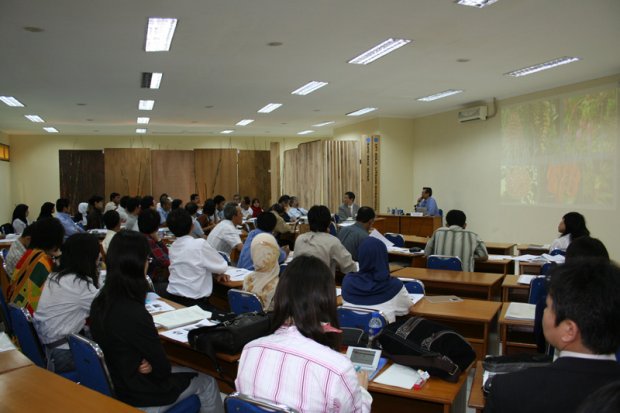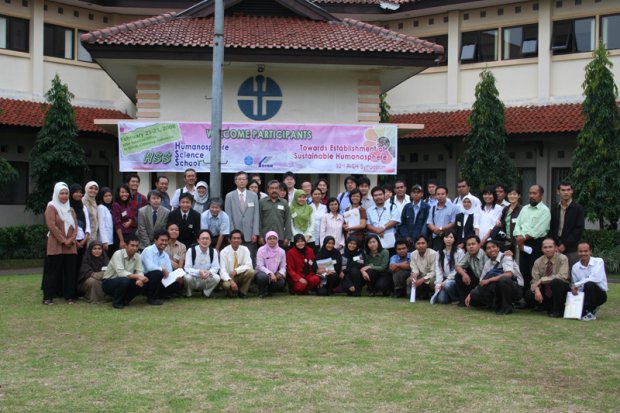HOME
> SeminarReport
> Humanosphere Science School and the 92th RISH Symposium in LIPI-Cibinong, Indonesia
Humanosphere Science School and the 92th RISH Symposium in LIPI-Cibinong, Indonesia
Name: Prof. Mamoru Yamamoto
RISH, Center for South-East Asian Studies (CSEAS) of Kyoto University, The Indonesian Institute of Sciences (LIPI), and the Global Center of Excellence (G-COE) Program "In search of sustainable humanosphere in Asia and Africa", with financial support from the Organizations for the Promotion of International Relations of Kyoto University, organized Humanosphere Science School (HSS) and the 92th RISH Symposium "Towards Establishment of Sustainable Humanosphere" in LIPI Biomaterial Center in Cibinong, Indonesia in February 21-23, 2008.
The RISH director, Prof. S. Kawai, CSEAS director, Prof. K. Mizuno, and Deputy of LIPI, Dr. E. Sukara attended the meetings together with attendants that reached about 90 including 23 Japanese delegates. Because of rich travel support from the G-COE Program, many young scientists, i.e., postdoctoral fellows and students in the PhD courses, could join these interesting meetings from Kyoto.
In HSS, Prof. B. Subyanto, Dr. Subyakto, and Dr. A. Firmanti from LIPI, and Prof. M. Yamamoto, Prof. J. Sugiyama, Prof. T. Watanabe, Dr. T. Yoshimura, and Dr. M. Fujita from RISH gave lectures that cover topics from the wood science, the forest ecology to the atmospheric remote sensing. On the second day, we had a scientific trip to Bogor Botanical Garden of LIPI.
The 92th RISH Symposium was held on the last day, and we had presentations by Dr. H. Soedjito from LIPI, Dr. E. Hermawan from National Institute of Aeronautics and Space (LAPAN) of Indonesia, Prof. S. Kawai, Prof. T. Umezawa, Dr. M. Shinohara, Dr. R. Ridyorini, Ms. S. Mizuno, and Mr. K. Koishi from RISH, Prof. H. Mizuno and Prof. K. Matsubayashi from CSEAS, and Dr. K. Nakamura from Kyoto University Graduate School of Asian and African Area Studies (ASAFAS). The topics spread over diverse fields, i.e., the regional studies of Asia and Africa, wood materials, plant-gene, biomaterials, tropical meteorology, and solar-power plant in space (SPS).
From these meeting we learned that vast study areas are concerned with the establishment of the sustainable humanosphere. Discussion in the meetings and conversations with scientists from different disciplines stimulated scientific interest of all participants including young scientists. We would like to continue organizing this kind of interesting and important meetings.
RISH-International Newsletter No.22

